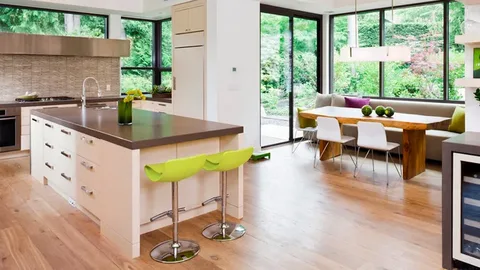Your kitchen benchtop is one of the most used surfaces in your home. Whether you’re preparing meals, hosting guests, or simply enjoying a cup of coffee, it takes center stage. That’s why it’s essential to keep it clean, hygienic, and looking its best. In this guide, we’ll show you how to maintain and clean your kitchen benchtop like a pro, using practical tips for every benchtop material.
Understand Your Benchtop Material
The first step in proper maintenance is knowing what your benchtop is made of. Common materials include:
- Laminate: Affordable and easy to clean but prone to scratches.
- Granite: Durable and heat-resistant but requires sealing.
- Quartz: Non-porous and low-maintenance.
- Marble: Elegant but more susceptible to stains and etching.
- Stainless Steel: Sleek and hygienic, ideal for modern kitchens.
Each material has different cleaning and care needs. Understanding this helps you avoid damage and ensure longevity.
Daily Cleaning Routine
No matter the surface, keeping up with a daily cleaning routine is key. Here’s how to maintain and clean your kitchen benchtop like a pro on a day-to-day basis:
- Wipe spills immediately to prevent stains.
- Use a soft cloth or sponge with mild dish soap and warm water.
- Avoid abrasive cleaners or scrubbers that can scratch the surface.
- Dry the surface after cleaning to prevent water spots or damage.
Deep Cleaning and Stain Removal
For tougher messes or regular deep cleaning, use the right products:
For Stone (Granite, Marble, Quartz)
- Use a pH-neutral stone cleaner.
- Never use vinegar or lemon, which can erode natural stone.
- Reseal stone surfaces every 6-12 months if required.
For Laminate
- A mixture of baking soda and water can lift stubborn stains.
- Avoid soaking, as water can cause swelling at the edges.
For Stainless Steel
- Use a microfiber cloth and white vinegar for a streak-free finish.
- Buff with olive oil to restore shine.
Pro Tips to Keep It Looking New
If you truly want to learn how to maintain and clean your kitchen benchtop like a pro, consistency is key. Here are some additional pro tips:
- Use cutting boards instead of chopping directly on the surface.
- Place hot pots on trivets to avoid heat damage.
- Don’t drag appliances or tools across the benchtop to avoid scratches.
- Regularly declutter to keep the space functional and attractive.
When to Call a Professional
Even with great care, benchtops sometimes need professional attention. If you notice:
- Deep scratches
- Persistent stains
- Cracks or chips
…it’s best to consult a specialist. A professional can help restore the surface or offer solutions that prevent further damage.
Final Thoughts
Knowing how to maintain and clean your kitchen benchtop like a pro not only keeps your kitchen hygienic and beautiful but also extends the life of one of your most valuable assets. With regular care, the right products, and a few professional habits, your benchtop will remain a showpiece in your home for years to come.


